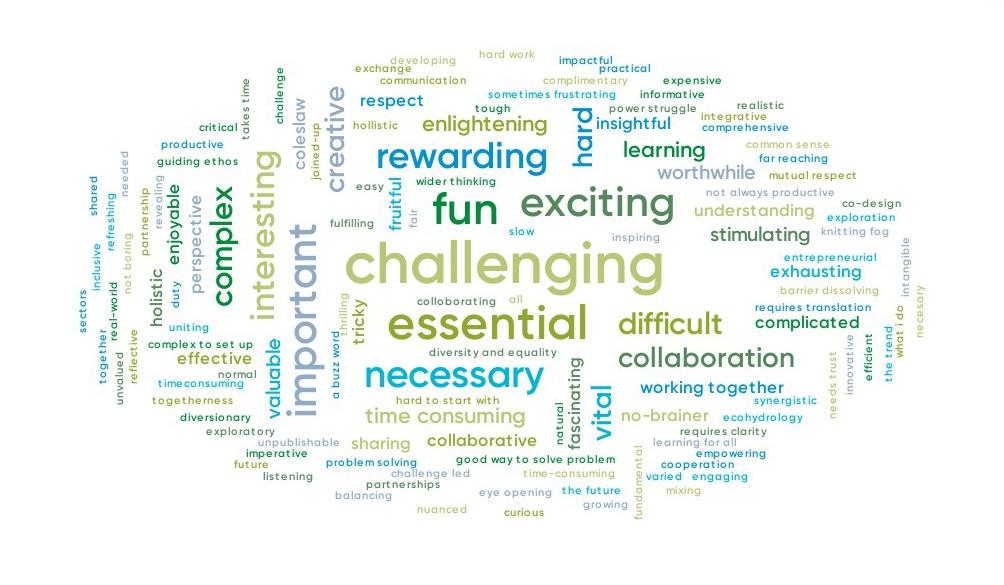
In this time of unprecedented change, to be successful in managing and finding solutions to the complex issues of the day, from pandemics, to climate change, to biodiversity loss, transformative approaches are needed. Thinking in individual disciplinary terms is as crucial as ever in order to progress specialist approaches. However, to address the complex technical, societal and environmental challenges we also need to break down the disciplinary silos, think outside the usual boxes, and bring a broad range of approaches together to best understand and provide solutions to these challenges.
The Valuing of Nature is notable in requiring research that brings together a variety of disciplines. This need was recognised by the Valuing Nature Programme, and for the last 5 years a host of interdisciplinary endeavours have been undertaken including projects, workshops, conferences and secondments. As the Programme draws to a close this report brings together experiences of the contributors and the broader audience from two events, to share the lessons learned from this innovative programme, in order to ensure the improved success of interdisciplinary working into the future. In this report, the reader is given evidence on why interdisciplinary working is needed now more than ever, what interdisciplinarity is, and how it can be successfully achieved and sustained.
Download the full report here
The report includes 7 Principles for Interdisciplinary Working, which are simple to follow but crucial to success. It goes further to provide suggestions for what needs to be done to make interdisciplinary working the norm rather than the exce ption.
ption.
The intended audience is broad - both specialists and non-specialists with an interest in working beyond traditional disciplinary boundaries and across the science-policy interface will find this report of interest. It is, after all true, that interdisciplinary working can just as equally occur between a government official and a biologist, as between an economist and an artist
Download the 7 Principles for Interdisciplinary Working here - a one-page summary you can take with you anywhere
Whilst Interdisciplinary working is universally accepted as challenging the resultant benefits are equally acknowledged as substantial. For academics it can be stimulating and lead to ground breaking collaborations; for user groups it can radically improve the relevance of answers provided to difficult questions; and for research commissioners it can drive the development of impactful proposals and projects.
This much awaited report is a definite feather in the cap of the Valuing Nature Programme and Network.
For more resources from the Webinar at which the report was launched, please click here
